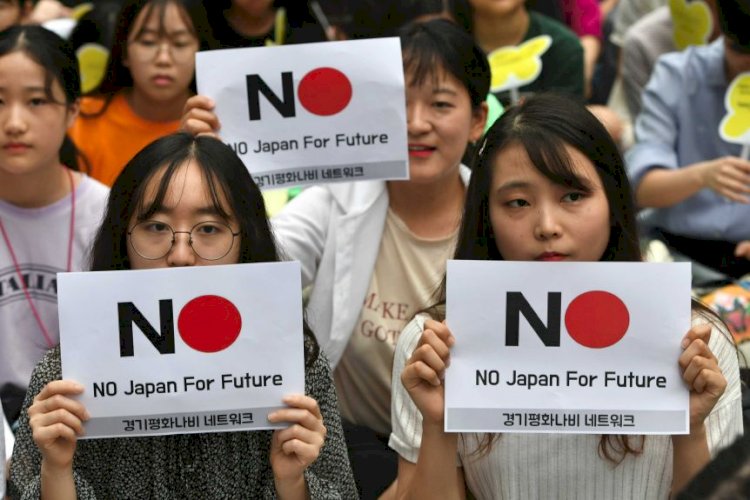Trade between Japan and South Korea to face more restrictions in the context of forced labor
A simmering conflict between Japan and South Korea is expected to cause further disruption to both countries' trade relations and diplomatic ties.

In August 2020, in Daegu, South Korea, the District Court authorized the acquisition of the region's Nippon Steel properties to reimburse Korean men forced to work in Nippon 's factories during the Second World War, when Korea was under Japanese rule. Nippon immediately appealed the verdict, and representatives of the Japanese government promised retaliation if assets were confiscated.
The row, which has been investigated in many South Korean courts for many years now, is the latest flashpoint in an increasingly tetchy relationship between Japan and South Korea, which is also increasingly threatening business links between the two nations, experts claim. The situation has worsened just over a year after Japan in July 2019 deprived South Korea of its preferential 'white-list' trading status. One month after this move, South Korean customs then alarmed market participants by ramping up radiation tests on Japanese shipments arriving at ports, although this situation was eased shortly afterwards.
In the metal scrap trade Japan and South Korea are strongly interdependent. According to official statistics, the combined Japanese exports of aluminum, copper wire and steel scrap to South Korea totaled almost 1.70 million tons in January-June 2020 and amounted to over 55 billion yen ($521 million). While South Korea has so far taken 20.6% of Japan's copper wire exports in 2020 — slightly higher than 19.9% in the full year of 2019 — steel scrap arrivals so far this year account for only 33.4% of Japan 's exports, compared to 51.4% for the entire year.
However, the reason for this drop is more likely to be due to the closure of several South Korean steel mills and the increased demand from buyers in Vietnam, Taiwan and Bangladesh for Japanese steel scrap, rather than strained relations. Japanese scrap market participants that the current deterioration in trade relations does not currently affect heavy industries such as scrap, but that they have noticed conflict levels in the consumer and retail goods sectors.
“All countries have long relationships in the scrap industry and there are many Koreans who work as scrap dealers in Japan. “The current governments hate each other but the real world of business is different. I do believe companies have some influence-I don't dispute that-but both countries rely on each other, "he added. Any blockage of South Korea 's Japanese scrap consignments would be completely self-defeating, a second Japanese scrap exporter said.
“South Korean mills can not manufacture steel unless they import Japanese scrap-they buy a lot of that. So if restrictions on imports are imposed solely because of political issues, the South Korean economy will not turn around. Despite the traditional closeness of the country-to - country business ties, both nations have made a concerted effort in recent years to lessen their mutual reliance. So one strategy the Japanese government has adopted was to impose export controls.
Japan applied export controls on consignments from Japan to South Korea in July 2019 on certain materials used in semiconductor production which is a key South Korean industry. "Last year's sanctions on exports of parts of semiconductors proved to be ineffective as Korean manufacturers simply changed supply chain or Japanese companies moved to southern Korea," says Hyun Hak Kim, Associate Professor in the Department of Economics at Kookmin University , South Korea.
“The government of Japan may think that the South Korean economy is still dependent on Japan but sanctions have not been effective. There could be "more widespread Japanese boycotts ... Consumer goods and automobiles in South Korea, increasing financial losses for Japanese firms in South Korea and South Korea's concerted efforts to lower its dependency on Japan for certain export categories , especially in technology space.” The Covid-19 crisis has had a negative effect on both economies, with the International Monetary Fund (IMF) forecasting in June that Japan's Gross Domestic Product ( GDP) will contract by 5.8% this year, while it expects South Korea 's GDP to contract by 2.1%. But the South Korean economy would have greater downside risks than Japan should trade relations between the two countries deteriorate further, because its economy is more dependent on external trade, including imports from Japan of semiconductors, production semiconductor devices as well as other chemicals.




























